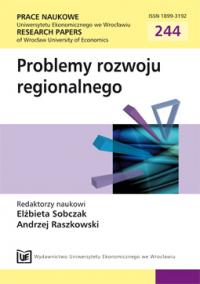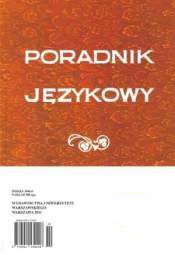
Analysis of spatial differentiation of expenditure on education in Poland
Analiza zróżnicowania przestrzennego wydatków na usługi z zakresu oświaty i wychowania w Polsce
Keywords: communal expenditure; local government budget constraints; expenditures on education
The article objective is to present and analyse the spatial differentiation of expenditures on education. In particular, the article concentrates on assessing how constraining these expenditures are for local government budgets. The authors present spatial differentiation in terms of expenditures on education as well as the constraints for local government budgets caused by these expenditures, based on data from the Local Data Bank (Central Statistical Office). The analysed data covers expenditures on kindergartens, primary schools and middle schools (gimnazjum) carried out by individual communes in 2010.
More...
